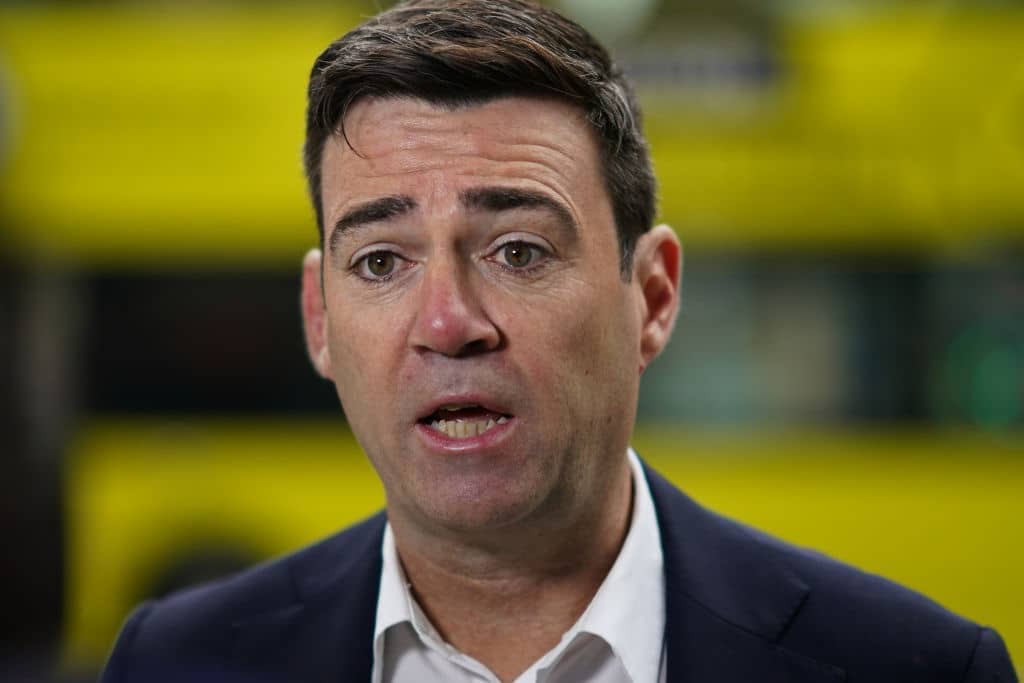They were queuing up to eclipse Keir Starmer this week. Rishi Sunak – already ahead of Starmer in the polls when it comes to who would make the better prime minister – came brimming with barbs designed to make the leader of the opposition look like a chump on Budget day.
In the event, Starmer did that to himself by getting hit with a Covid sicknote and shadow chancellor Rachel Reeves took his place, securing rave reviews from leftist commentators in her leader’s absence.
But the most significant and damaging eclipse of Starmer occurred far away from Westminster and was therefore the least noticed. Greater Manchester Mayor Andy Burnham, the bookies’ hot favourite to be next Labour leader – even though he is not currently an MP – audaciously set in train his own strategy for taking on the Tories.
Without even mentioning Starmer during an interview on the Today programme, Burnham ripped up Labour’s traditional (and losing) handbook for fighting the Conservatives and set out an alternative approach that might actually cause them some problems.
In the Commons, Reeves relied on boilerplate lines written by Team Starmer that depended on the notion that most voters think of the Boris Johnson administration as a home counties conspiracy against the common man (‘At least the bankers on short haul flights sipping champagne will be cheering this Budget’, ‘A yacht for ministers, a fancy paint job for the PM’s plane… £30m to the former health secretary’s pub landlord’, ‘Working people are left out in the cold while the Government hammers them with tax rises’).
Burnham has ripped up Labour’s traditional (and losing) handbook for fighting the Conservatives
Burnham, by contrast, had clearly realised that these infantile caricatures, appealing as they are to tribal leftists, stand no chance of winning over the red wall voters who went Tory in 2019. So he decided instead to take the government seriously on its levelling-up agenda.
First up, he acknowledged Sunak’s fundamental success in steering the economy through the Covid rapids: ‘It does feel different than the economy I was expecting. The city (Manchester) has come back stronger than I thought it would.’
Secondly, he eschewed the sniping of the metropolitan left about the very notion of ‘levelling up’, instead seeking to make himself a co-owner of the concept. ‘It certainly feels encouraging. We had a positive announcement at the weekend. But one announcement does not level up the north,’ he told the BBC’s Nick Robinson.
When asked about the Tory decision to raise the national living wage to £9.50, he deftly retorted: ‘That’s us winning the argument. We have said you cannot carry on with the same people living on poverty pay.’
Next up he set a test for the government likely to resonate with groups of voters Labour needs to win back, observing that the key issue was: ‘Will the Chancellor do enough to make levelling-up a credible national mission?’
Finally, he laid the ground for coming to a verdict in due course that no, the Conservatives were not capable of delivering the kind of radical levelling-up they were promising and that only a moderate and sensible non-Tory – perhaps someone with Cabinet experience and a name that rhymes with Bandy Urnham – could be trusted to do just that.
Yet even here he did not rely on a devil’s horns depiction of Conservatives, instead identifying the Treasury as an institution as the major factor liable to impede the ‘serious investment’ that would be needed: ‘I’m worried that traditional Treasury thinking is taking hold. This is the time to invest. It’s an opportunity to reindustrialise,’ he said.
The PM’s focus on carbon net zero had the potential to act as ‘the catalyst to a country that is more even and equal across the regions’, he said. But for that to happen ministers would need to really ‘go at’ it.
In another media appearance after the Budget had been delivered, his approach was similarly nuanced, agreeing there were ‘plenty of positives’ in what had been a ‘feelgood Budget’. He put down some critical markers, for example on the lack of any reference to a proposed new Northern Powerhouse Rail Link (connecting Liverpool, Manchester, Bradford and Leeds).
It is undoubtedly true that Burnham has more leeway to behave in this grown-up way because he has at least one precious commodity that Starmer lacks: time. The current Labour leader must prepare for battle in 2023 or 2024, while the Greater Manchester Mayor is clearly intent on creating a prospectus for power to unleash at an election around 2028.
That he should set about the task in a manner that cuts the ground from under Labour’s Westminster operation is not only a sign of Burnham’s mid-career ruthlessness. It also tells us that he is all but certain that the Starmer project has already failed.
Initial public reaction to the Budget would seem to bear him out. Savanta ComRes found it had 53 per cent approval, with just 15 per cent disapproving and support was strongest among those who had followed Sunak’s announcements most closely, suggesting it will land even better than those headline figures suggest as its contents are more widely disseminated.
There is absolutely no guarantee that Burnham will do much better than Starmer in seeking to dismantle the new Tory electoral coalition when he eventually gets his turn, as he surely will. But until that moment comes wise judges will agree that his party is simply marking time.







Comments